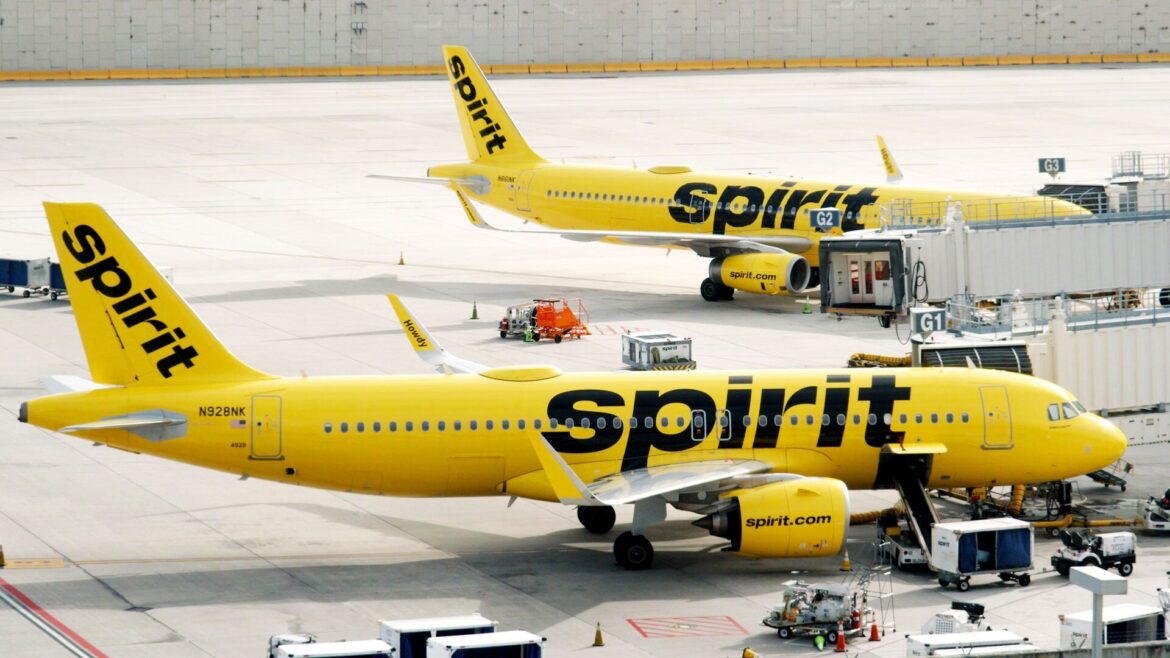Advertiser & Editorial Disclosure: The Bulkhead Seat earns an affiliate commission for anyone approved through the links below. This compensation may impact how and where links appear on this site. We work to provide the best publicly available offers to our readers. We frequently update them, but this site does not include all available offers. Opinions, reviews, analyses & recommendations are the author’s alone, and have not been reviewed, endorsed, or approved by any of these entities.
United Airlines CEO Scott Kirby delivered a bold prediction this week when he stated that Spirit Airlines is headed for bankruptcy and declaring that the ultra-low-cost carrier (ULCC) model that once revolutionized the airline industry is no longer viable in today’s market.
Spirit Airlines, once the poster child of the ULCC model, filed for Chapter 11 bankruptcy protection late last month. This marks its second bankruptcy filing in less than a year. The airline had previously restructured in early 2025, but emerged from its first bankruptcy without making deep enough changes to its business. When Spirit returned to the market this year, it faced a combination of weaker-than-expected travel demand and persistently high operating costs. This forced it back into financial distress. In response to mounting challenges, Spirit has cut a dozen destinations from its network this year. Meanwhile, competitors such as United, JetBlue Airways, and Frontier Airlines have been expanding service to many of Spirit’s core markets.
For years, Spirit thrived by offering rock-bottom base fares and charging customers extra for nearly everything else, including carry-on bags, seat selection, and refreshments (including water). This à la carte approach drove growth and profitability for a time (especially among price-sensitive travelers). However, Kirby has long argued that this model was unsustainable. On Thursday, he reiterated his criticism, pointing out that major US carriers have successfully deployed “basic economy” fares that match ULCC base prices, but include more amenities such as free carry-on bags, snacks, and access to a broader international network.
Adding to the pressure, Spirit and Frontier have recently begun offering bundled fare options, such as packages that include seat assignments and baggage. While these initiatives mark a shift away from the traditional ULCC model, they have not been enough to offset declining demand and rising costs.
Despite the turmoil, Frontier Airlines CEO Barry Biffle remains optimistic. Last month, Biffle announced the carrier’s goal to become the largest ultra-low-cost airline in the US, overtaking Spirit. Frontier currently ranks as a close second to Spirit in the ULCC segment, but Spirit’s downsizing over the past year has opened the door for Frontier to capture more market share.
Spirit’s struggles highlight a broader challenge facing discount airlines: balancing ultra-low fares with customer expectations and operational sustainability. As travelers increasingly demand a mix of affordability and value-added services, the line between traditional full-service airlines and low-cost carriers continues to blur. With Spirit on the brink and Frontier attempting to rise, it’s uncertain how the ULCC model will look in the future.

Kirby’s prediction may soon be tested. If Spirit fails to successfully emerge from its second bankruptcy, it could mark the end of an era in the US airline industry. CNBC reports that Kirby said:
You can’t have a business model that customers hate. You can’t have a business model predicated on ‘screw the customer.'”
Anthony’s Take: It will be interesting to see what becomes of Spirit and if it does cease to exist what that does to airfare. Aside from the fact that I like the airline, it serves a purpose in keeping airfare in check.
(Image Credits: Spirit and United.)
User Generated Content Disclosure: The Bulkhead Seat encourages constructive discussions, comments, and questions. Responses are not provided by or commissioned by any bank advertisers. These responses have not been reviewed, approved, or endorsed by the bank advertiser. It is not the responsibility of the bank advertiser to respond to comments.
Advertiser & Editorial Disclosure: The Bulkhead Seat earns an affiliate commission for anyone approved through the links above This compensation may impact how and where links appear on this site. We work to provide the best publicly available offers to our readers. We frequently update them, but this site does not include all available offers. Opinions, reviews, analyses & recommendations are the author’s alone, and have not been reviewed, endorsed, or approved by any of these entities.

1 comment
When Scott my-middle-name-is-not-actually-dishonest Kirby says something I’d take it with a grain of salt. I suspect that Spirit will not actually survive but saying the same about Allegiant and every other ULCC is just more dumb mouth noises by Kirby. I don’t expect refined eloquence from the guy, even though he has a reputation for being intelligent, but not spouting ridiculous assertions would be a welcome change and help his street cred a lot.